
The word nationalism is being tossed around with alarming alacrity in the country since the last couple of years. So what does it really mean? Is it love for land? A common cultural ethos imbibed by the people of a country? A thread tying a diverse society with its fault lines? A sentiment that challenges revolting situations? An intense debate rages on...
The online medium has only made this debate shriller, bordering on hate mongering and a lynch mob mentality -- ripping apart anyone or anything that stands to challenge a Tweet, post or image. Effectively, it's My Way or The Highway, preferably in another country!
The word anti-national has perhaps never been used in such a loose manner before. Loaded with such hatred, animosity and a complete lack of understanding... From actors to historians to activists, anyone who dares to criticise, question or form a different opinion that is at odds with public sentiment or perception is immediately christened 'anti-national'. Hello, intolerance. Farewell, sense and sensibility.
Are we as a nation becoming self-obsessed with our presumed greatness, thus completely blind to our faults and utterly averse to criticism? Is nationalism or allegiance to one's country only based on one's food habits, choice of places of worship or which festivals one chooses to celebrate?
As we celebrate our 70th Independence Day, let's take a look at the kind of nationalism our national heroes had envisioned.
Mahatma Gandhi:
"Hatred is not essential for nationalism. Race hatred will kill the real national spirit.
Let us understand what nationalism is. We want freedom for our country. We do not want suffering for other countries. We do not want the exploitation of our countries. We do not want the degradation of other countries. For my part I don't want freedom of India if it means the disappearance of Englishmen, if it means the extinction of Englishmen. I want freedom of my country so that other countries may learn something from this free country of mine. I want freedom of my country so that the resources of my country might be utilized for the benefit of mankind."
--
Jawaharlal Nehru:
"Sometimes as I reached a gathering, a great roar of welcome would greet me: Bharat Mata ki Jai-- Victory to Mother India! I would ask them unexpectedly what they meant by that cry, who was this Bharat Mata, Mother India, whose victory they wanted? My question would amuse them and surprise them, and then, not knowing exactly what to answer, they would look at each other and at me. I persisted in my questioning. At last a vigorous Jat, wedded to the soil from immemorial generations, would say that it was the dharti, the good earth of India, that they meant. What earth? Their particular village patch, or all the patches in the district or province, or in the whole of India? And so question and answer went on, till they would ask me impatiently to tell them all about it. I would endeavour to do so and explain that India was all this that they had thought, but it was much more. The mountains and rivers of India, and the forests and the broad fields, which gave us food, were all dear to us, but what counted ultimately were the people of India, people like them and me, who were spread out all over this vast land. Bharat Mata, Mother India, was essentially these millions of people, and victory to her meant victory to these people. You are parts of this Bharat Mata, I told them, you are in a manner yourselves Bharat Mata, and as this idea slowly soaked into their brains, their eyes would light up as if they had made a great discovery."
--Discovery of India
BR Ambedkar
"I am not going to support a tyrannizing majority simply because it happens to speak in the name of the country. I am not going to support a party because it happens to speak in the name of the country. I shall not do that... As between the country and myself, the country will take precedence. As between the country and the Depressed classes, the Depressed classes will take precedence."
In 1939, Ambedkar made his stand clear in the legislative council, Bombay Province.
Rabindranath Tagore:
"I have seen in Japan the voluntary submission of the whole people to the trimming of their minds and clipping of their freedom by their government, which through various educational agencies regulates their thoughts, manufactures their feelings, becomes suspiciously watchful when they show signs of inclining toward the spiritual, leading them through a narrow path not toward what is true but what is necessary for the complete welding of them into one uniform mass according to its own recipe. The people accept this all-pervading mental slavery with cheerfulness and pride because of their nervous desire to turn themselves into a machine of power, called the Nation, and emulate other machines in their collective worldliness."
It's easy to jump into a debate on nationalism or tag someone anti-national on Twitter, with the help of 140 character rants. But to actually understand what nationalism is all about, we may need to go back to the founding fathers, the great thinkers of this country, people who actually shaped our history, literature and politics...
This Independence Day, let's unfurl the tri-colour, wear our love for the country on our sleeves and actually understand what constitutes the idea of India.


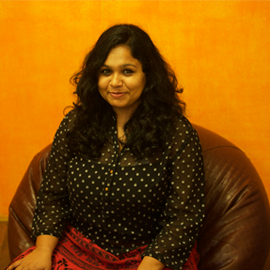
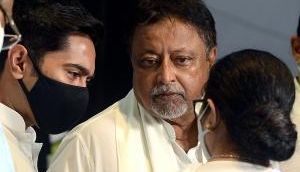
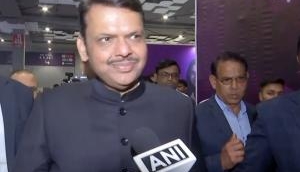
_in_Assams_Dibrugarh_(Photo_257977_300x172.jpg)
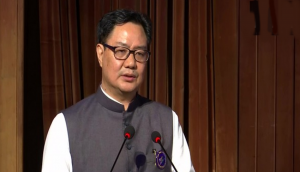
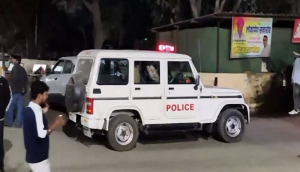
![BJP's Kapil Mishra recreates Shankar Mahadevan’s ‘Breathless’ song to highlight Delhi pollution [WATCH] BJP's Kapil Mishra recreates Shankar Mahadevan’s ‘Breathless’ song to highlight Delhi pollution [WATCH]](https://images.catchnews.com/upload/2022/11/03/kapil-mishra_240884_300x172.png)

![Anupam Kher shares pictures of his toned body on 67th birthday [MUST SEE] Anupam Kher shares pictures of his toned body on 67th birthday [MUST SEE]](https://images.catchnews.com/upload/2022/03/07/Anupam_kher_231145_300x172.jpg)





_in_Assams_Dibrugarh_(Photo_257977_1600x1200.jpg)
